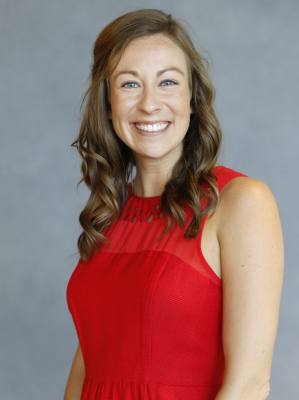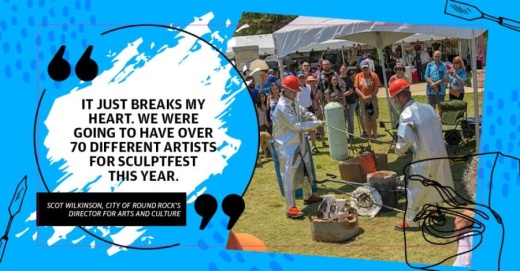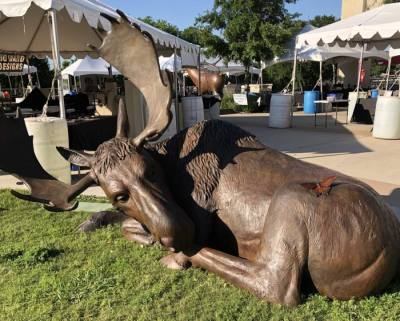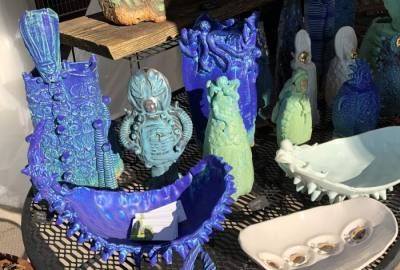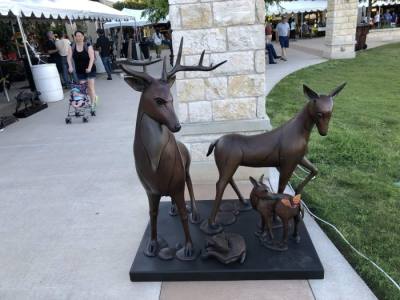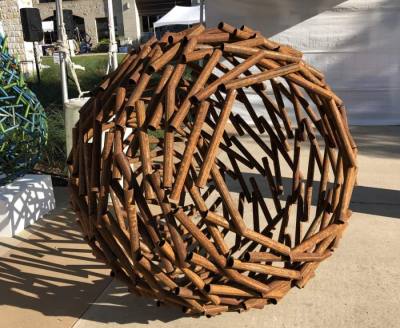However, this year the 28th annual arts festival has been cancelled, due to restrictions surrounding public gatherings amid the coronavirus outbreak.
“It just breaks my heart,” Wilkinson said. “We were going to have over 70 different artists for SculptFest this year.”
Hosted by the Texas Society of Sculptors, Deep in the Heart Foundry and the city of Round Rock, SculptFest has taken place in Round Rock for the past two years. The event drew between 15,000-20,000 attendees in 2018 and 2019, Wilkinson said.
Local artists, as well as sculptors from across the country, set up booths at the festival to showcase their work. Last year, Wilkinson said, the event lead to approximately $900,000 worth of sculpture sales.
“I’m devastated for the artists,” he said. “Not having the opportunity to show their products really hurts them. And it hurts the city of Round Rock, too. They stay in our hotels and eat at our restaurants while they’re here.”
When he first learned that the coronavirus might upend plans for the festival, Wilkinson said he and the other event organizers began brainstorming alternate ideas to support the artists. The result is a virtually-hosted event, composed of 9 videos, each approximately 2-3 minutes in length.
“I didn’t want to completely cancel the festival,” he said. “I thought the best we could do for our sculptors was to take the images they had submitted to us when they applied to be in SculptFest this year and to make videos of it.”
The videos, which are available online, include imagery of artwork paired with the creator’s name. A document with links to the artists’ websites has also been made available, so viewers can purchase items or find out more about the sculptors’ work.
“I care about the artists,” Wilkinson said. “I want them to have the opportunity to still get their work looked at. Maybe they’ll even be able to get some sold. They’re beautiful works, and the artists have been working all year for this.”
While a virtual option offers some consolation in the wake of a cancelled event, an in-person festival provides ways of connecting to art and artists that are difficult to replicate online, Wilkinson said.
“The loss is not being able to have the one-on-one between the customer and the artist,” he said. “This year, you won’t be able to hear the artists’ stories in person, to see a sculptor put their hands on a piece of art and tell you a story about how they created it, where it came from, what it’s made of.”
From Wilkinson’s perspective, crises have challenged the way artists create and display their craft for centuries. While the coronavirus pandemic is new, an artist’s response to such a time as this has historical precedent.
“We’ve had to change our ways of how we do art for centuries,” he said. “This is not the first time a crisis has challenged us creatively.”
He added: “This is one way we’ll have to heal our country, through art.”


